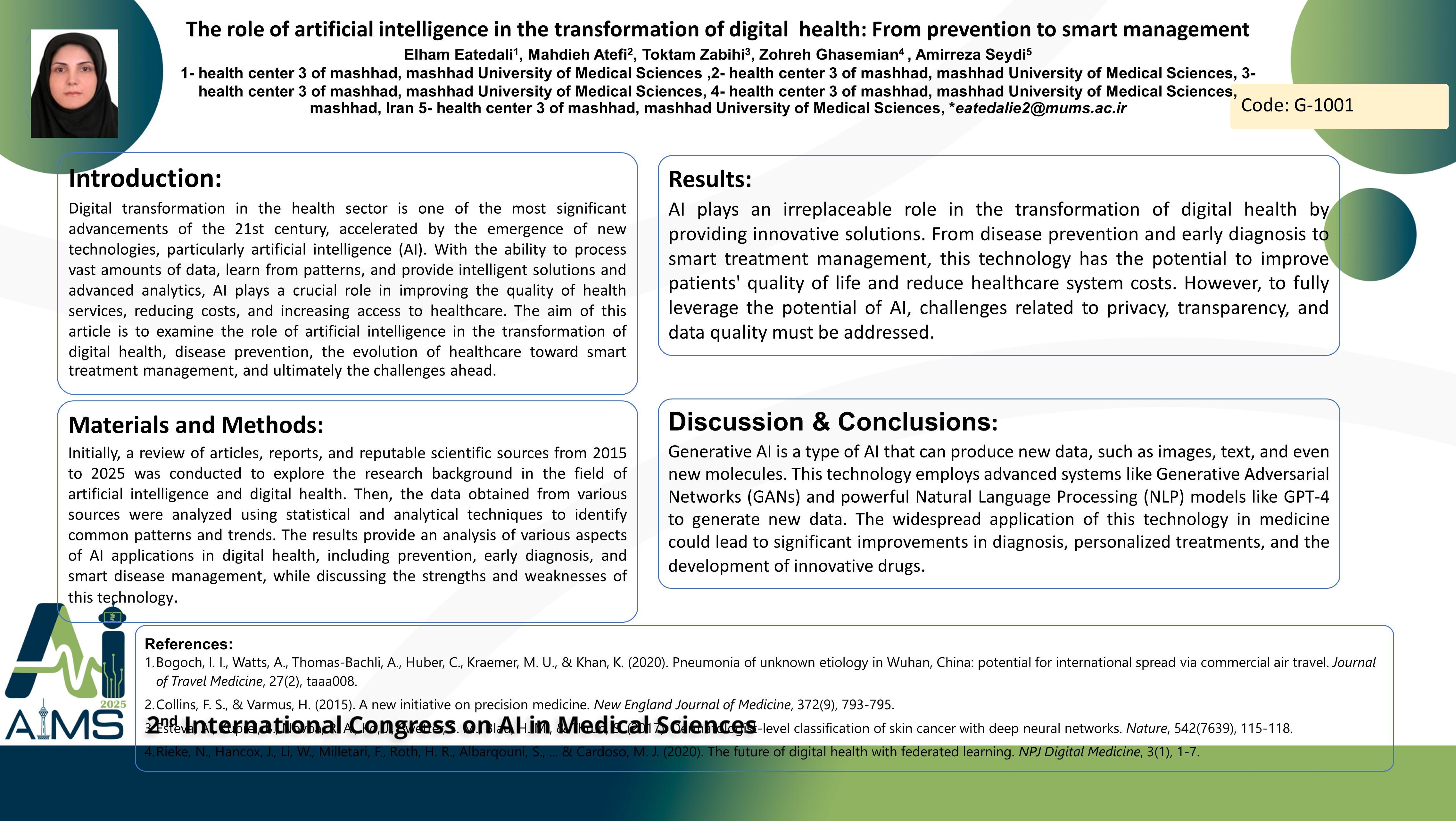The role of artificial intelligence in the transformation of digital health: From prevention to smart management
Code: G-1577
Authors: Elham Eatedali * ℗, Mahdieh Atefi, Toktam Zabihi Hesri, Zohreh Ghasemian, Amirreza Seydi
Schedule: Not Scheduled!
Tag: Clinical Decision Support System
Download: Download Poster
Abstract:
Abstract
Background and aims: Digital transformation in the health sector is one of the most significant advancements of the 21st century, accelerated by the emergence of new technologies, particularly artificial intelligence (AI). With the ability to process vast amounts of data, learn from patterns, and provide intelligent solutions and advanced analytics, AI plays a crucial role in improving the quality of health services, reducing costs, and increasing access to healthcare. The aim of this article is to examine the role of artificial intelligence in the transformation of digital health, disease prevention, the evolution of healthcare toward smart treatment management, and ultimately the challenges ahead. Method :Initially, a review of articles, reports, and reputable scientific sources from 2015 to 2025 was conducted to explore the research background in the field of artificial intelligence and digital health. Then, the data obtained from various sources were analyzed using statistical and analytical techniques to identify common patterns and trends. The results provide an analysis of various aspects of AI applications in digital health, including prevention, early diagnosis, and smart disease management, while discussing the strengths and weaknesses of this technology. Results :AI plays an irreplaceable role in the transformation of digital health by providing innovative solutions. From disease prevention and early diagnosis to smart treatment management, this technology has the potential to improve patients' quality of life and reduce healthcare system costs. However, to fully leverage the potential of AI, challenges related to privacy, transparency, and data quality must be addressed. Conclusion: Generative AI is a type of AI that can produce new data, such as images, text, and even new molecules. This technology employs advanced systems like Generative Adversarial Networks (GANs) and powerful Natural Language Processing (NLP) models like GPT-4 to generate new data. The widespread application of this technology in medicine could lead to significant improvements in diagnosis, personalized treatments, and the development of innovative drugs.
Keywords
Artificial Intelligence, Digital Health, Healthcare
